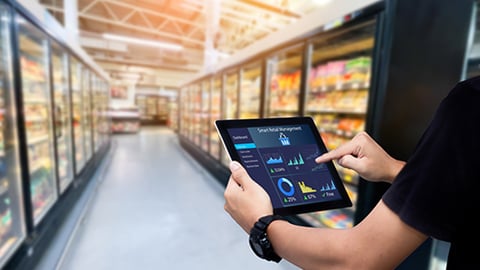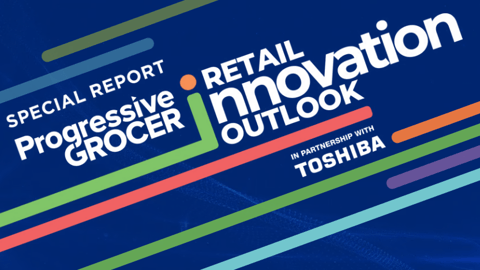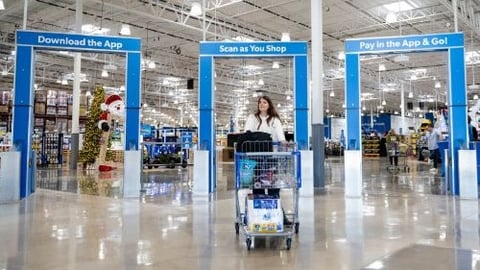EDITOR'S NOTE: The Agents Are Coming
Now that the Kroger-Albertsons merger is off (for a variety of very debatable reasons), the ripple effects from this failed deal will in part redefine the grocery landscape in 2025.
The business challenges for traditional supermarkets, and especially Kroger and Albertsons, are going to become much more formidable.
Let’s put aside, for now, the lawsuit that Albertsons filed, the companies’ balance sheets, and how the blocked deal might end up being worse for consumers and employees.
Non-supermarket competitors such as Walmart, Costco, Amazon, and ALDI are thriving after years of investments in technology, assortment and price. Retail media networks from some of these larger competitors will get even stronger and more ad dollars from brands. But, there’s a change of administration coming on Jan. 20, and President-elect Trump has already named a conservative, Andrew Ferguson, as the new chair of the Federal Trade Commission (FTC). A Trump administration FTC might be more sympathetic to the argument that a Kroger-Albertsons-type of merger allows these companies to compete better with giants such as Walmart and Amazon, setting the stage for more consolidation in the grocery industry (Will Amazon buy Albertsons?).
And then, of course, there’s the U.S. consumer – who is less loyal and more demanding than ever.
How will grocers compete and thrive in 2025? By staying ahead of the trends that are poised to dominate the grocery industry in 2025:
1. Time to Google the Words “Agentic AI”
AI-powered retailing is fast becoming table stakes and in 2025, executing an AI strategy and understanding how to derive maximum business value from it will be Priority No. 1. Retailers will use AI to optimize operations and deliver hyper-personalized experiences, tailoring product recommendations, promotions, and shopping lists to individual customers based on their purchase history, dietary preferences, and even health goals.
Meanwhile the buzzword on the lips of every product executive – “agentic AI” – is an AI system capable of independently executing tasks with minimal human supervision (no more prompts). This tech promises next-level personalization and predictive analytics, a boon for retailers.
2. Sustainability Will Finally Have Its Era
As climate concerns explode, shoppers will increasingly seek out grocers that prioritize eco-friendly practices. In 2025, many stores will implement carbon-neutral or even carbon-negative strategies, such as sourcing renewable energy for operations, reducing food waste, and offering more sustainable packaging options.
Expect to see a rise in products with transparent supply chains that detail their environmental impact. In response, retailers may adopt blockchain technology to provide verifiable sustainability credentials.
Moreover, the growth of plant-based and lab-grown proteins will continue, appealing to environmentally conscious consumers and those seeking alternative diets.
3. The Great E-Commerce Reckoning
Shoppers buying their groceries online reached an all-time high in November, according to data from Brick Meets Click and Mercatus. Around 77.8 million households ordered their groceries online; this is more than the number of orders during the height of the pandemic in April 2020. Delivery sales rose 22% year-over-year, and grabbed 40.6% of grocery e-commerce orders. Pickup accounted for 41.3% of orders, and had an 8% year-over-year increase.
In 2025, many small and mid-tier retailers will keep outsourcing their e-commerce and charge customers to cover their costs. Larger retailers will turn more to drone and robotic deliveries as they look for speedier and lower-cost methods.
4. Wellness Without Limits
Consumers are increasingly prioritizing their health, and grocery retailers will respond by expanding their selections of functional foods, supplements, and personalized nutrition solutions.
In 2025, many stores will feature sections dedicated to "health-enhancing" products, such as foods fortified with probiotics, adaptogens, or specific vitamins. In addition, grocers will leverage data from wearable health devices and apps to offer products aligned with individual health metrics. This level of integration will create a new era of wellness-focused grocery shopping.
5. Leaner But Not Meaner
The traditional large-format supermarket will face competition from smaller, tech-enabled stores that focus on convenience and efficiency. These smaller stores, such as the new Whole Foods Daily Shop format, will be strategically located in urban and suburban neighborhoods, catering to busy professionals and families.
Retailers looking to differentiate will have to invest in fresh food offerings such as expanded meal solutions, in-store events such as sampling, and tech such as an AI-powered assistant that helps shoppers answer the question: “What’s for dinner?”






